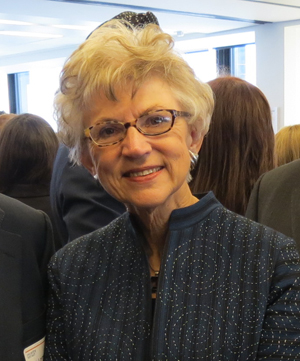Lawyers are defending Supreme Court Chief Justice Beverley McLachlin with The Advocates’ Society calling on the government to issue a correction to “repair the potential damage caused by these remarks.”

“There’s no question the bar is concerned about this,” says Alan Mark, president of The Advocates’ Society.
“The reason we weighed in is it’s very important that Canadians have confidence in the administration of justice and the judiciary,” he adds.
Since last week, McLachlin has faced what Mark calls a “rather extraordinary” situation in which federal officials have publicly suggested she inappropriately contacted the prime minister about Justice Marc Nadon’s appointment to the Supreme Court. The allegations last week suggested McLachlin had lobbied against Nadon’s appointment, an issue she clarified in a statement on Friday. “At no time was there any communication between Chief Justice McLachlin and the government regarding any case before the courts,” the statement reads.
The statement notes that in April 2013, McLachlin met with Prime Minister Stephen Harper to give him justice Morris Fish’s retirement letter. “As is customary, they briefly discussed the needs of the Supreme Court of Canada,” according to the statement.
Then on July 29, McLachlin provided the parliamentary committee dealing with the appointment of the next Supreme Court judge with her view on the court’s needs. Two days later, her office called the minister of justice and Harper’s chief of staff to “flag a potential issue regarding the eligibility of a judge of the federal courts to fill a Quebec seat on the Supreme Court,” according to the statement.
The same day, she spoke with Justice Minister Peter MacKay to flag the potential issue. While her office made preliminary inquiries to have a discussion with Harper, she ultimately decided not to pursue a call or a meeting, according to the statement.
“Given the potential impact on the Court, I wished to ensure that the government was aware of the eligibility issue,” said McLachlin.
“At no time did I express any opinion as to the merits of the eligibility issue. It is customary for Chief Justices to be consulted during the appointment process and there is nothing inappropriate in raising a potential issue affecting a future appointment.”
The matter of Nadon’s eligibility did arise, of course, following his nomination in the fall. The Supreme Court found he was ineligible in its ruling on the matter this year. The government is now saying MacKay had told Harper not to speak to McLachlin last summer.
Lawyers are now rallying to defend McLachlin. Canadian Bar Association president Fred Headon raised concerns about the matter over the weekend, and The Advocates’ Society released a letter it sent Harper saying “there is no substance” to the government’s criticism that McLachlin lobbied against Nadon’s appointment and that she improperly interfered in a matter before the court.
“She most assuredly did not comment on or interfere in a matter that was then pending before the court,” the statement reads. “The proposed appointment of Justice Nadon was not announced until September 30, 2013, and issues concerning his appointment were not referred to the court until October 22, 2013, some three months later.”
Eugene Meehan, a lawyer with Supreme Advocacy LLP in Ottawa, describes the issue as a battle of “duelling press releases” that has gained increased prominence as a result of the top court’s increased public profile given “the social media, TV age that we live in” and the nomination-style parliamentary hearings introduced in recent years. “What happened here is normal consultation which has traditionally happened over years and decades,” says Meehan, himself a former executive legal officer to former chief justice Antonio Lamer.
“There isn’t really much here. This is not really a hill of beans,” he adds, noting there’s not much difference in the events described in the duelling press releases from the government and McLachlin.
Meehan notes the government traditionally consults with a range of players when it reaches the point of having a short list of candidates for the top court. They’ll typically include people like the CBA president and the chief justice. It’s a dialogue that is “normal, that is traditional, that until now was not considered problematic,” says Meehan, who notes he’s not aware of a chief justice having flagged a potential issue before. “I personally and professionally cannot say,” he says.
But he adds: “The flagging of a potential issue is the constitutional equivalent of flicking your headlights at oncoming traffic to warn a person of a possible speed trap ahead. The person seeing the flickering lights gets to choose whether they will do anything about it or not.”
At the end of the day, Meehan believes the issue will fade. “Two weeks from now, one may be hard pressed to ask people about it and have them knowledgeably tell you what they remember,” he says.
The Advocates’ Society, however, remains forceful in its take on the issue. “The comments at issue here can only serve to undermine the respect and confidence of ordinary Canadians in the proper administration of justice, and we therefore urge you to make a public statement advising Canadians that the chief justice did not conduct herself inappropriately in any way,” it said in its statement addressed to Harper.
“Nothing less than such a correction will repair the potential damage caused by these remarks.”

 “There’s no question the bar is concerned about this,” says Alan Mark, president of The Advocates’ Society.
“There’s no question the bar is concerned about this,” says Alan Mark, president of The Advocates’ Society.